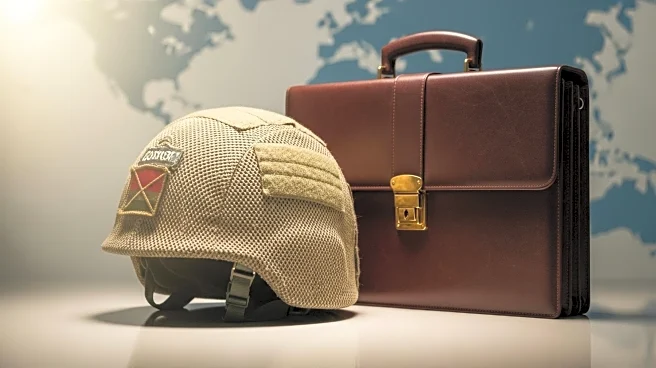What's Happening?
During President Trump's recent state visit to the UK, he suggested that the British government should consider using military forces to manage irregular migration. This advice was given during a press conference at Chequers, where Trump stated that the military could be used to stop people from entering the country. However, Peter Kyle, the UK Business Secretary, dismissed this suggestion, emphasizing that the UK Border Force, which has been reinforced and given new powers, is sufficient for handling such issues. Kyle highlighted that the UK Navy already collaborates with the Border Force and can be called upon if necessary. The UK government is currently implementing a 'one-in, one-out' deportation scheme with France, which has faced legal challenges.
Why It's Important?
The suggestion by President Trump to use military forces for border control highlights ongoing international discussions about migration management. While the UK government has opted for a different approach, the proposal underscores the complexities and challenges countries face in addressing irregular migration. The UK's decision to rely on its Border Force rather than military intervention reflects its current policy stance and operational capabilities. This development also illustrates the diplomatic dynamics between the US and UK, particularly in how migration policies are perceived and advised upon by international leaders.
What's Next?
The UK government will continue to focus on its current migration policies, including the 'one-in, one-out' scheme with France. Legal challenges to deportations are expected to persist, potentially influencing future policy adjustments. Additionally, ongoing negotiations between the UK and US regarding tariffs on British steel products will continue, as indicated by Peter Kyle. The broader implications of President Trump's comments may also prompt further discussions on international cooperation in migration management.









